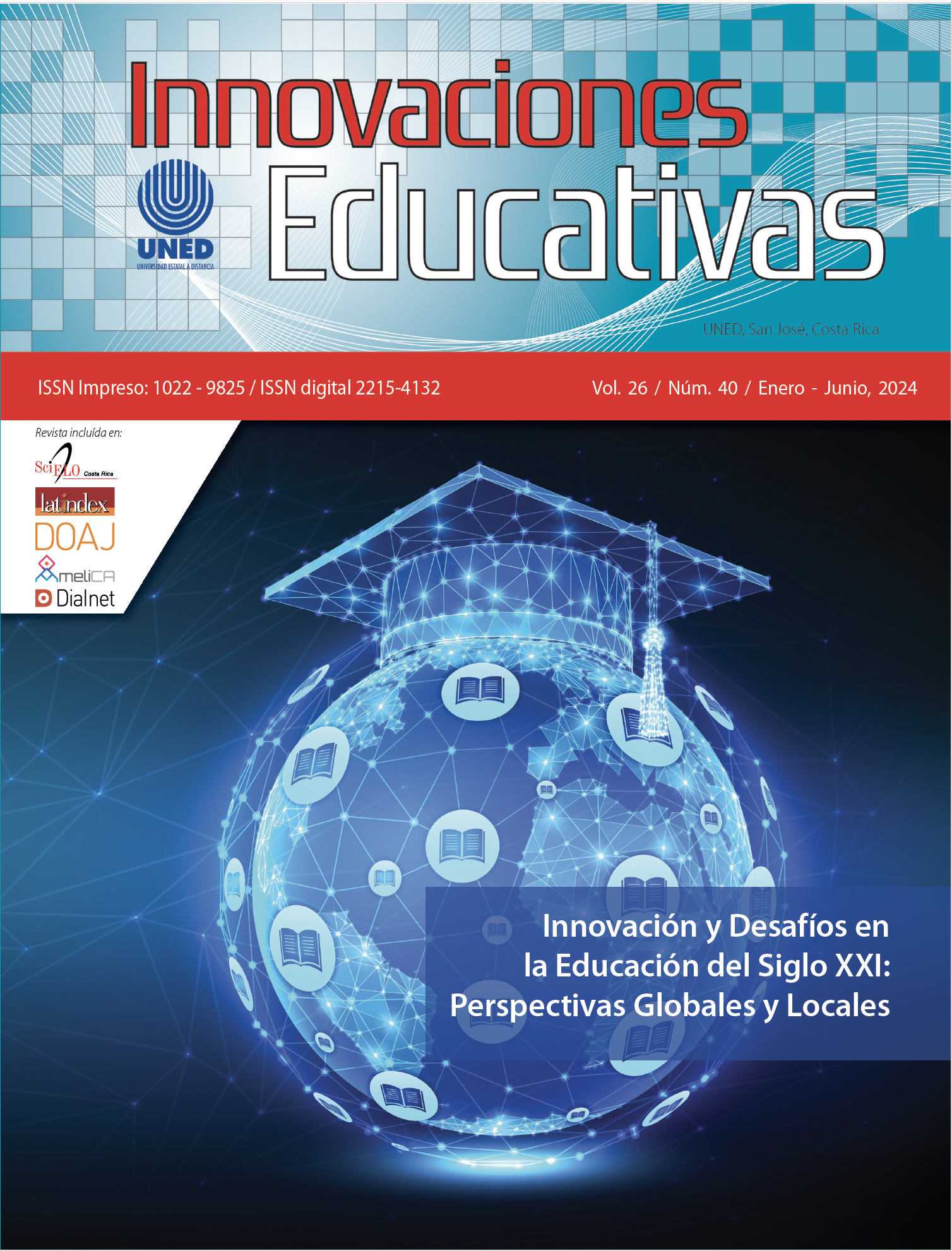Globalization, inequality and social injustice: implications on education and adult education
DOI:
https://doi.org/10.22458/ie.v26i40.4770Keywords:
globalization, inequality, social injustice, social movements, education, learning processAbstract
Inequality and social injustice have destroyed confidence in human nature by creating shameful gaps that touch upon sociocultural, economic, environmental, spiritual, and political aspects that undoubtedly impact learning processes. The aim of this paper is to explore significant aspects of globalization, inequality and social injustice and their impact on education and adult education. Framed within a general qualitative framework, this paper has adopted an exploratory methodology that intends to provide an in-depth understanding of the phenomenon. This paper offers a critical and reflexive position aiming at raising a significant level of awareness in an attempt to promote and generate reflection spaces that help in the diminution of social injustices and inequalities in our globalized societies within an educational lens. First, globalization is discussed. Obviously, globalization has brought the world together in a spiral of knowledge, technology, and information. Next, inequality in education is explored: residential schools, the prevalence of racism and the systematic invisibility of minority groups. Additionally, social injustice and movements in adult education are also considered: the Antigonish movement, the frontier college, and the no movement against Central America Free Trade Agreement (CAFTA). It is a foregone conclusion that inequality and social injustice have had a tremendous impact on societies and learning settings as well. Finally, neoliberal policies have promoted a very noticeable savage economic Darwinism that privileges commodification, privatization and a public pedagogy that focuses on entrepreneurial subjects.
References
Álvarez, M. (2011). Movimientos Sociales y Participación Política: El Movimiento contra el TLC en la Campaña del
Referéndum 2007 en Costa Rica. Anuario De Estudios Centroamericanos, 37, 201-230.
Banks, J. A. (2008). Diversity, group identity, and citizenship education in a global age. Educational Researcher. American
Educational Research Association, 37(3), 129-139.
Carpenter, S. & Mojab, S. (2013). What is “Critical” About Critical Adult Education? In: Nesbit, T., Brigham, S., Taber, N.,
& Gibb, T. (Eds.). Building on critical traditions: Adult education and learning in Canada. Thompson Nelson.
England, K. (1994) Getting Personal: Reflexivity, Positionality, and Feminist Research, The Professional Geographer, 46:1,
-89, https://doi.org/10.1111/j.0033-0124.1994.00080.x
Fleras, A. (2016). Theorizing Micro-aggressions as Racism 3.0: Shifting the Discourse. Canadian Ethnic Studies, 48(2), 1-
Freire, P. (2018). Pedagogy of the oppressed. Bloomsbury
Giroux, H. (2014). Neoliberalism’s war on higher education. Haymarket Books.
Hall, B. (2006). Social movement learning: Theorizing a Canadian tradition. In T. Fenwick, T. Nesbit, & B. Spencer (Eds.),
Contexts of adult education: Canadian perspectives (pp. 230-238). Thompson Educational.
Hernández, R., Fernández, C. & Baptista, P. (2010). Metodología de la investigación. MacGraw Hill.
Knight, J. (2013). The challenging landscape of higher education internationalization – for better or worse. Policy and
Practice in Higher Education, 17(3), 84-90.
Lee, J. (2018). Conceptual foundations for understanding inequality in participation in adult learning and education (ALE)
for international comparisons. International Journal of Lifelong Education, 37(3), 297-314.
MacKeracher, D. (2009). Social change in historical perspective. New Directions for Adult and Continuing Education,
(124), 25-35.
Mckay, B. (2017). The politics of convergence in Bolivia: Social movements and the state. Third World Quarterly, 1-23
Merriam, S., Caffarella, R. & Baumgartner, L. (2007). Learning in adulthood: A comprehensive guide, 3rd ed. Jossey-Bass.
Nathani, N. (2016). African Women and Canadian History: Demanding Our Place in the Curriculum. In: Zawilski, V. (Ed.).
Inequality in Canada: A reader on the intersections of gender, race, and class (3rd Edition). Oxford University Press.
Schissel, B. & Wotherspoon, T. (2016). The Legacy of Residential Schools. In: Zawilski, V. (Ed.). Inequality in Canada: A
reader on the intersections of gender, race, and class (3rd Edition). Oxford University Press
Weber, J. (2014). Humanism within globalization. Adult Learning, 25(2), 66-68.
Zawilski, V. (Ed.) (2016). Inequality in Canada: A reader on the intersections of gender, race, and class (3rd Edition). Oxford
University Press.
Downloads
Published
How to Cite
Issue
Section
License
Copyright (c) 2023 Innovaciones Educativas

This work is licensed under a Creative Commons Attribution-NonCommercial-NoDerivatives 4.0 International License.

